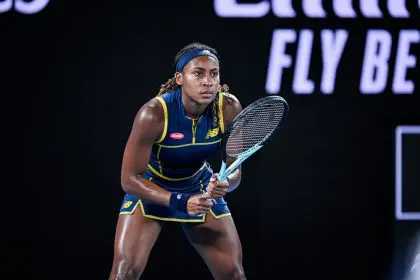The boxing world was stunned when undefeated lightweight champion Gervonta Davis revealed his plans to retire from professional boxing after the 2025 season. At just 29 years old and with an unblemished professional record of 29-0, Davis has sent ripples through the sport’s landscape, leaving fans and analysts contemplating the future of boxing’s lightweight division.
The rise of a champion
Long before becoming one of boxing’s most electrifying figures, Davis’s journey began in the tough streets of Baltimore. His raw talent and dedication to the sport became evident early on, as he dominated amateur competitions and quickly transitioned to the professional ranks. Under the guidance of Floyd Mayweather’s promotional company, Davis rapidly ascended through the boxing hierarchy, capturing multiple world titles across different weight classes.
His signature style, combining explosive power with remarkable speed, has made him one of the most watched fighters of his generation. Davis’s ability to sell out arenas and generate substantial pay-per-view numbers has established him as one of boxing’s premier attractions, following in the footsteps of his mentor Mayweather.
Understanding Davis’ decision
The timing of Davis’s retirement announcement has prompted extensive discussion within the boxing community. At an age when many fighters are entering their prime, Davis’s decision to step away raises questions about the modern athlete’s approach to career longevity and personal well-being.
The physical demands of professional boxing often take a severe toll on athletes, leading many to consider early retirement. Davis’s decision appears to be influenced by a combination of factors, including financial security achieved through successful fights and a desire to explore opportunities beyond the ring. Family considerations and personal growth have also played crucial roles in shaping this significant career move.
Legacy in the making
Throughout his career, Davis has accumulated numerous achievements that have cemented his place in boxing history. His multiple world championships across three weight classes stand as a testament to his versatility and skill. Perhaps most impressively, Davis has maintained a perfect knockout-to-win ratio in championship fights, setting records for pay-per-view numbers in the lightweight division.
Impact on boxing’s landscape
Davis’s impending departure creates a significant void in the lightweight division. His absence will affect various aspects of the sport, particularly in terms of commercial impact. The loss of one of boxing’s biggest draws will force promoters and networks to cultivate new stars. Davis’s ability to attract casual fans and create mainstream interest in boxing events has been crucial for the sport’s continued growth.
The competitive landscape of the lightweight division will undergo a major restructuring as contenders vie for the position Davis currently occupies. This transition period could lead to exciting matchups and the emergence of new talents. As one of the sport’s most prominent African American athletes, Davis’s influence extends beyond the ring, inspiring countless young athletes, particularly in urban communities, to pursue their dreams in boxing.
The final chapter
The announcement of Davis’s retirement has created unprecedented interest in his remaining fights. These matches will likely feature carefully selected opponents that will help cement his legacy while maintaining his undefeated record. Each remaining fight will carry additional significance as part of Davis’s farewell tour, potentially increasing their historical value in boxing’s narrative.
The scarcity created by his impending retirement could drive up the value of his final appearances, potentially setting new revenue records for the lightweight division. Fight promoters and television networks are already positioning themselves to maximize the commercial potential of Davis’s final bouts.
Looking beyond the ring
Davis’s post-boxing future presents numerous possibilities. His marketability and business acumen suggest potential success in various ventures. Following the path of successful retired athletes, Davis could transition into entrepreneurship, potentially launching his own promotional company or training facility.
His charismatic personality could lead to opportunities in sports commentary or entertainment, maintaining his connection to boxing while building a new career. Davis has also shown interest in community development, suggesting he might focus on charitable initiatives, particularly in his hometown of Baltimore.
The sport’s evolution
Davis’s retirement announcement reflects broader changes in professional boxing. Modern fighters are increasingly conscious of their long-term health and financial security, often choosing to retire earlier than previous generations. This shift demonstrates the evolving nature of athletic careers in the 21st century, where success is measured not just by longevity but by strategic career management.
As the sport continues to evolve, Davis’s decision may influence other young champions to consider similar career trajectories, potentially changing the traditional narrative of boxing careers extending well into athletes’ late thirties or early forties.














